Examining the Bank of Ghana’s Actions: A Comprehensive Analysis
In the realm of Ghanaian politics and finance, a contentious debate has taken center stage, revolving around the actions of the Bank of Ghana (BoG) and the alleged exaggeration of issues by the Minority in Parliament. The Minority’s claims regarding the substantial amounts of money printed in 2021 and 2022 to finance the government have sparked a discourse that demands a thorough and unbiased examination. In this comprehensive analysis, we delve into the various facets of the controversy, the legal aspects, and the implications for Ghana’s economic landscape.
Unraveling the Allegations
The Minority in Parliament has vehemently accused the Bank of Ghana of lacking reasonable justification for printing substantial sums of money in the years 2021 and 2022. Their claim rests on the assertion that these actions are in direct contravention of the governing law, thus igniting a fierce debate over the legality and propriety of the central bank’s actions.
The Legal Quandary
A pivotal aspect of this discourse hinges on the question of legality. The Minority contends that the printed amounts—GHS 35 billion in 2021 and GHS 42 billion in 2022—exceed the legally acceptable threshold of 5% of the previous fiscal year’s total revenue. This threshold is a crucial safeguard designed to prevent reckless printing of money, which could potentially lead to inflationary pressures and economic instability.
The Bank of Ghana’s Defense
A Deeper Dive into Legal Provisions
The assertion made by the Majority Leader, Mr. Osei Kyei-Mensah-Bonsu, raises a critical point regarding the legal framework governing the Bank of Ghana’s interactions with Parliament. Contrary to the Minority’s claims, there is no explicit law mandating the Bank to report its daily activities to Parliament. The mandate primarily revolves around reporting foreign exchange receipts, a point that Mr. Kyei-Mensah-Bonsu emphasizes as being consistently upheld by the Bank.
On the other side of the spectrum, Mr. Osei Kyei-Mensah-Bonsu, the Majority Leader, has stepped forward to counter the Minority’s claims. He asserts that the Bank of Ghana Governor does not directly report to Parliament and cautions against turning every issue into a political battleground. He highlights the need for a nuanced understanding of the Bank’s operations and its vital role in the economic ecosystem.
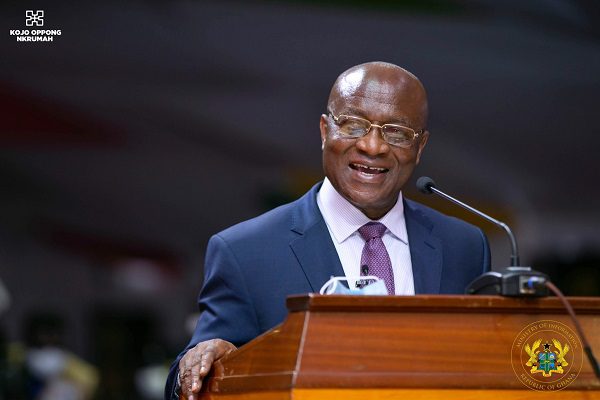
Constitutional Nuances
Underpinning this discourse is a constitutional principle that holds significant weight—the principle of consistency with the Constitution. If any law is found to be inconsistent with the Constitution, it is rendered null and void. This notion underscores the complexity of the debate, as it raises the question of whether the alleged breaches of the Bank of Ghana Act truly hold water when scrutinized against the Constitution.
Debunking Exaggeration or Lack of Examination
The Majority Leader’s assertion that the Minority might be either exaggerating the issues or failing to examine the facts underscores the need for a balanced and evidence-based perspective. This perspective requires a comprehensive analysis of the context in which the Bank of Ghana intervened in the national economic landscape.
BoG’s Role in Economic Resilience
Mr. Kyei-Mensah-Bonsu’s remarks also highlight the role of the Bank of Ghana in mitigating economic challenges faced by the nation. He points to the substantial international reserves—amounting to nearly 10 billion—that the Bank had strategically built. These reserves played a pivotal role in helping Ghana weather the storm during trying times, demonstrating the importance of a well-prepared central bank in the face of economic uncertainties.

The Way Forward
As the debate rages on, it is imperative to emphasize the need for a constructive and evidence-based dialogue. A thorough examination of the Bank of Ghana’s actions in context, as well as a nuanced understanding of the legal provisions and constitutional principles at play, can provide a solid foundation for moving forward.
Conclusion
In conclusion, the controversy surrounding the Bank of Ghana’s actions demands an in-depth analysis that transcends political divides. The allegations put forth by the Minority in Parliament, the legal provisions guiding the Bank’s operations, and the constitutional principles governing these actions collectively contribute to a multidimensional discourse. It is only through a comprehensive examination of these facets that we can arrive at an informed perspective that considers the complexities of Ghana’s economic landscape.



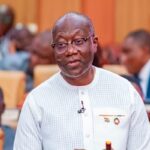
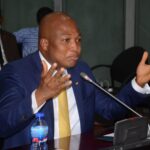




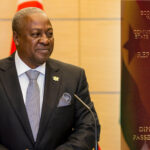






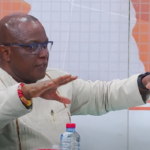




















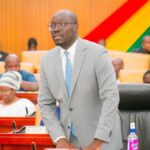



No Comments on Examining the Bank of Ghana’s Actions: A Comprehensive Analysis